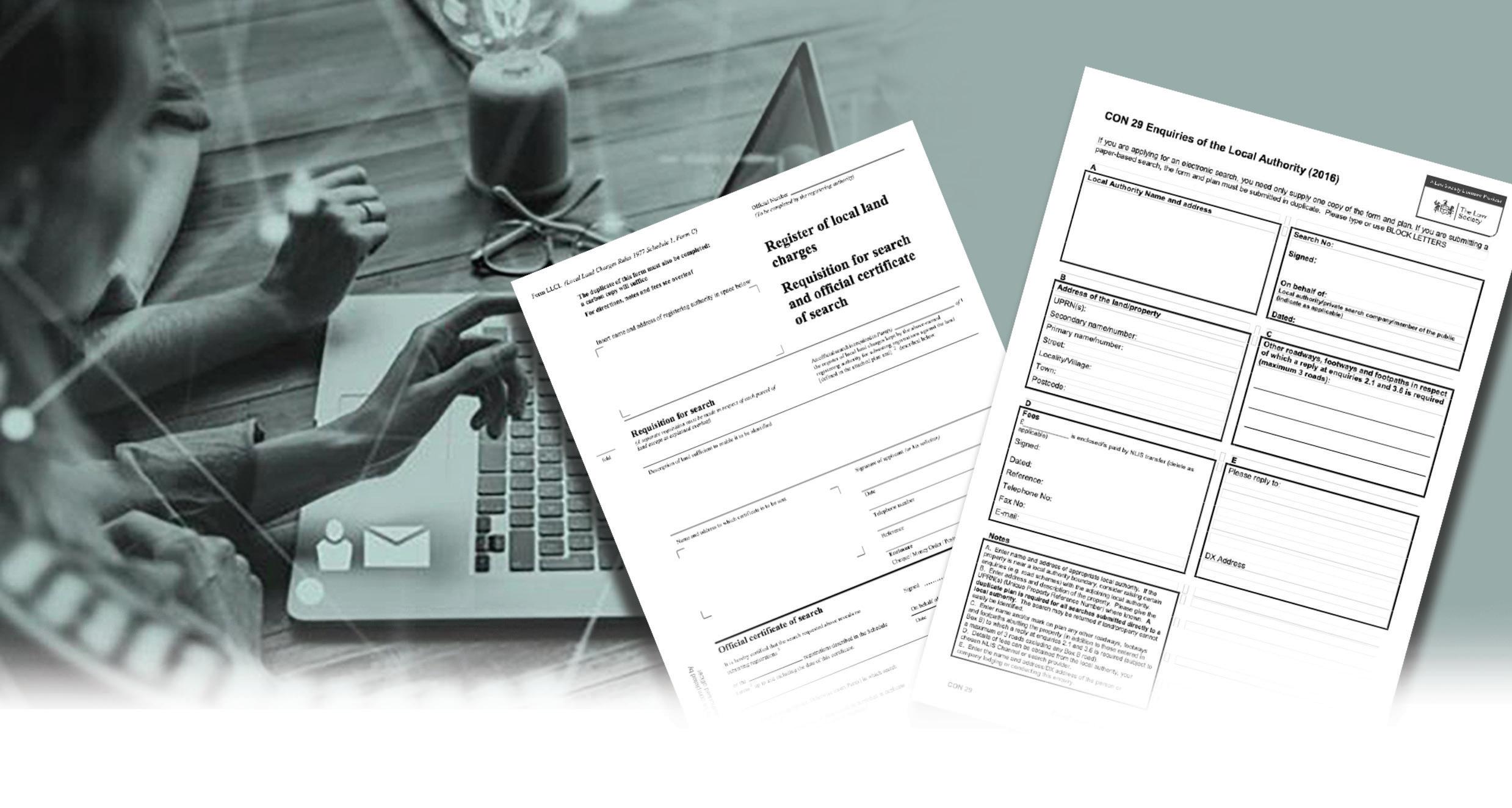
4 minute read
The End of the Council Search?
HAMPSHIRE SPONSOR ARTICLE
The End of the Council Search?
For generations, property transactions in England and Wales have relied on Local Land Charges Searches, or the “Council Search.” The familiar combination of a Local Land Charges search (LLC1) and the CON29 enquiries gave solicitors and conveyancers a single document of local authority information on which they could confidently advise their clients.
I remember, as LLC Registrar, receiving these forms (in duplicate) with cheques attached at City Hall in the 80’s and 90’s.
But the landscape has changed. HM Land Registry’s migration of the Local Land Charges Register to a national digital service has disrupted long-standing practices. The LLC1 now sits with HMLR in approaching almost 50% of Council areas, while the CON29 remains in local authority hands countrywide and will remain so.
In many councils, staff shortages and budgetary pressures mean that the once-familiar “Council Search” is no longer what it was — and in some cases is disappearing altogether.
And who knows how the new authorities will deal with inheriting part of one Council while losing some areas to a new body next door. Some have still not recovered from the last re-organisations.
The Fragmented Picture
What was once a unified council-issued product has become fractured: part centralised, part local, often inconsistent, and sometimes delayed or incomplete. Conveyancers and their clients are left to navigate an increasingly uneven landscape, where the quality of information depends more on the resources of the individual Council than on any standard.
This extends to huge price variations even within the same County and even more disparate return times and quality standards.
Why Regulated Searches Are More Reliable
This is where Regulated Searches have come into their own. Reputable, regulated search providers are:
• Entitled to obtain the LLC1 data directly from HMLR — ensuring completeness and accuracy.
• Skilled at interrogating multiple datasets — often more efficiently than overstretched councils, with staff often having decades of experience in the private sector.
• Subject to strict regulation, insurance and oversight under the Search Code — offering clear consumer protection.
• Focused on service levels — providing consistency, accountability, and reliable turnaround times.
In short, Regulated Searches are not a “second best” substitute. They are the only way to ensure that conveyancers and their clients get a truly dependable, joined-up search in today’s fragmented system.
This fragmentation is magnified when we consider the cross referencing which is so important in compiling a full Search (LLC1 & CON29 combined). Planning, Highways, trees and conservation can all be grossly contradicted between the 2 parts.
The Way Forward
Rather than lamenting the death of the Council Search, we should recognise it as the natural end of an outdated model. In a world where HMLR has taken on the LLC1 and councils are struggling to resource CON29 services, the future lies with professional search providers who can not only bridge the gap but improve things.
For solicitors and conveyancers, the safest course is clear: rely on Regulated Searches. They combine national data with local expertise, are backed by consumer protection, and deliver the certainty clients need, as well as uniformed prices across the country allowing you to have set quotes for search costs.
The Council Search has served us well since its inception in 1975, but 50 years on, things have moved on considerably.
Council Searches
LLC1 now held by HMLR, CON29 remains with councils different Departments.
Regulated Searches
LLC1 obtained directly from HMLR, CON29 data sourced from multiple verified datasets
Timescales and prices vary greatly between councils; some withdrawing from searches entirely.
National consistency, reliable turnaround times, and accountability
No single regulatory framework; quality depends on local authority resources.
Fully regulated under the Search Code – backed by two levels of insurance.
Loss of local expertise as council teams are cut back and Departments reorganised.
Providers are specialists with experience, trained to interrogate complex datasets
Risk of delay, inconsistency, or incomplete coverage
Seamless, well presented reports tailored for conveyancers and clients
The Council Search is a fading model. It is the victim of Central Government projects and Local Government re-organisation and funding restrictions. The Regulated Search is the reliable way forward.
Still getting “Official Land Registry Data” but with experts putting the full report together.










